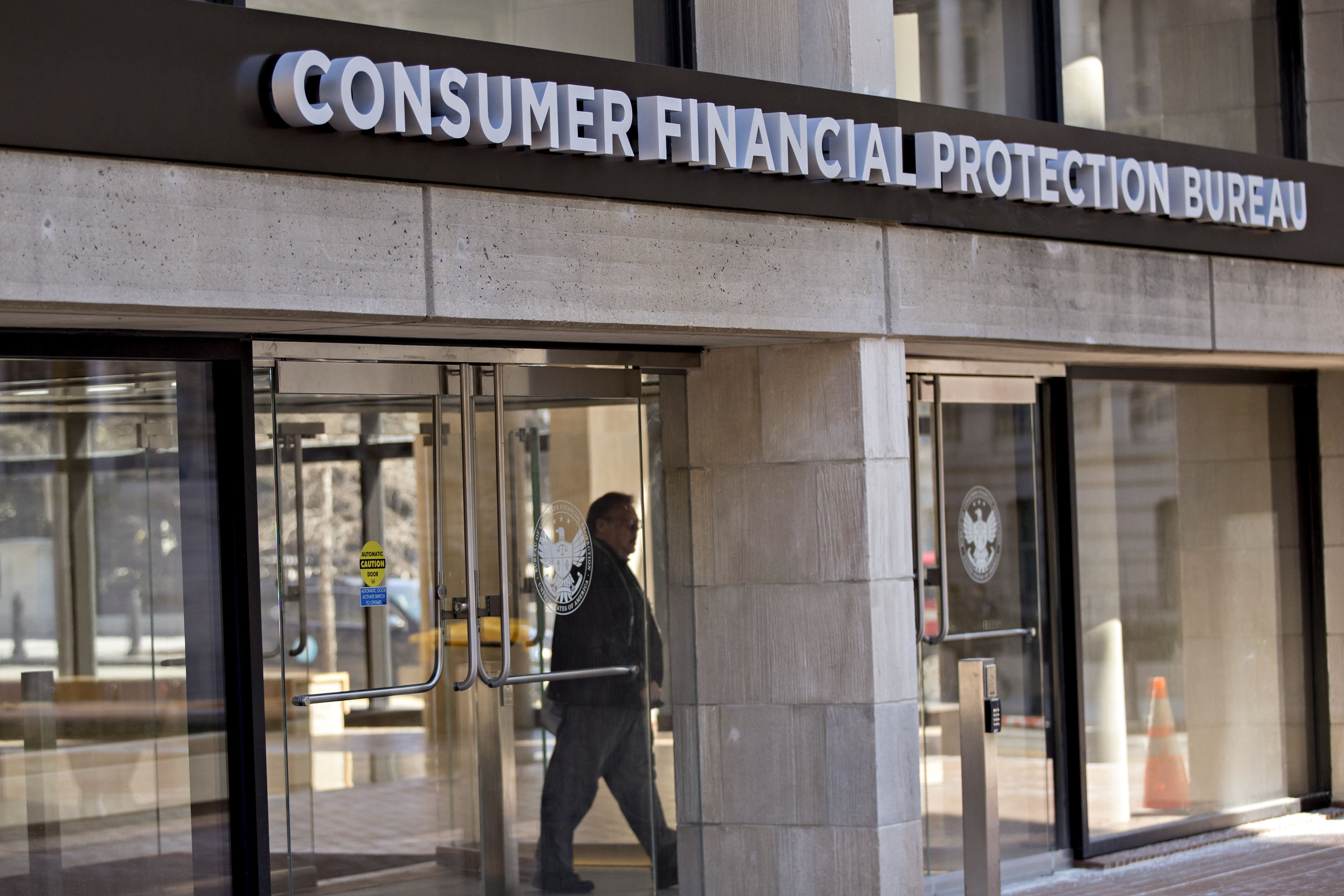
A man exits the Consumer Financial Protection Bureau (CFPB) headquarters in Washington, D.C., U.S., on Tuesday, March 5, 2019.
Andrew Harrer | Bloomberg | Getty Images
The Consumer Financial Protection Bureau has cracked down on another company trying to swindle money out of student loan borrowers by promising them relief with their debt.
The bureau on Tuesday sued California-based Student Loan Pro, its owner Judith Noh and manager Syed Faisal Gilani for allegedly charging consumers more than $3.5 million in illegal upfront fees. Student Loan Pro was in business from 2015 to 2019, according to the consumer agency and apparently charged borrowers to file paperwork on their behalf for access to federal debt-relief programs that are normally free to apply for.
“The CFPB will use all the tools at its disposal, including litigation, to protect struggling borrowers and put an end to unlawful debt-relief schemes,” David Uejio, the bureau’s acting director, said in a statement.
More from Personal Finance:
Here’s how the $10,200 unemployment tax break works
Here’s when direct deposits of stimulus checks will be available
Don’t file amended tax return to get unemployment tax break, IRS says
A website for Student Loan Pro appears to have been taken down, and the company didn’t respond to a request through social media for comment.
There are more than 44 million student loan borrowers in the U.S., and the country’s total outstanding loan balance is expected to exceed $2 trillion by 2022. The average student loan balance is around $30,000, up from $10,000 in the early 1990s, with many borrowers owing $100,000 or more. The average bill is $400 a month, according to higher education expert Mark Kantrowitz.
For fraudsters, this is all an opportunity.
The scammers usually promise borrowers student debt forgiveness and lower payments. They often request upfront fees for up to thousands of dollars for this “service,” which is illegal.
Never respond to requests to share your federal student ID, except from your servicer or the government, Kantrowitz said.
Also, he said, be wary of any promises of “immediate” cancellation of your student debt.
“As we all know, loan forgiveness is not that quick of a process,” Kantrowitz said, citing one of the most popular — and real — programs. “Public service loan forgiveness takes 10 years.”
These scammers will often offer services that you could do yourself, online, in less than half an hour.
For example, if you’re struggling to meet your student loan payments, you might be able to switch into an income-driven repayment plan with your servicer. Under the program, your monthly bills will be capped at a portion of your earnings. (And remember that until the end of this September, most federal student loan borrowers are off the hook from their payments.)
Loan forgiveness might truly be available to you, if you, say, work in public service or are permanently disabled, but these programs require paperwork, not payments.
If you suspect you’ve been tricked by one of these companies, you should contact your lender or servicer and let them know what happened. You can also file a complaint with the CFPB.
You’ll also want to change your username and password on your student loan account as soon as possible.
For its part, personal finance site NerdWallet has built a database of companies promising student loan services and relief that you should be wary of.




